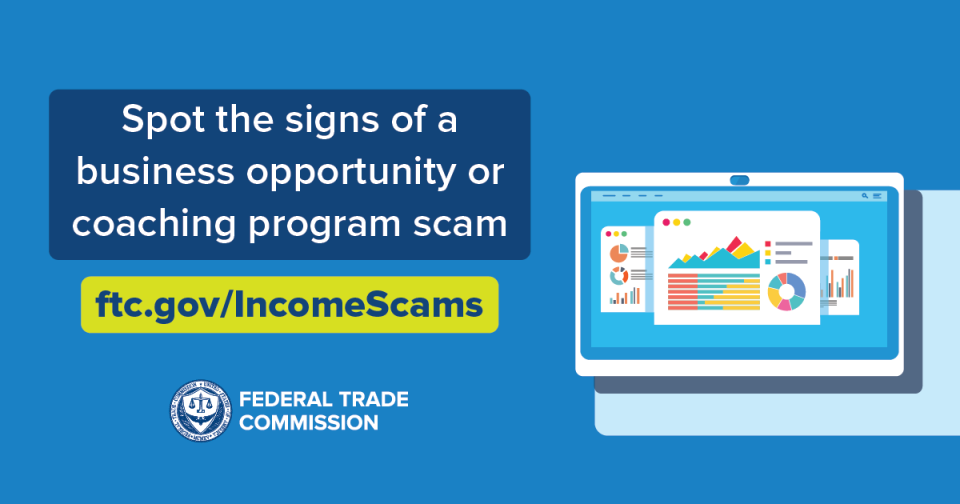The FTC charged that a business opportunity and coaching scheme bilked consumers out of tens of millions of dollars. The scheme grew on the back of baseless claims about how much money customers could make.
The company behind the scheme, Automators, AI, (operated by the former owners of Empire Ecommerce and Onyx Distribution), promised to set up for buyers profitable third-party stores on sites like Amazon, Walmart, and Facebook Marketplace, using artificial intelligence to pick top-selling products.
They said they were experts who’ve been doing this for years and that they’ve helped clients make a lot of money. In reality, most of the online stores the company managed for its clients were routinely suspended and shut down by Amazon and Walmart for policy violations. And despite their claims that customers could make thousands of dollars a month in passive income, most clients didn’t even recuperate the money they paid to buy in.
So, what should you do if you’re thinking about buying into a business opportunity? Ask the seller to give you a copy of the legally required 1-page disclosure document. It must
- identify the seller
- tell you about any lawsuits against the seller
- tell you if the seller has a cancellation or refund policy, and what the terms are
- give you a list of references
- tell you if the seller is making a claim about how much money you can make. If they are, they also must give you an earnings claim statement.
If the seller says anything that contradicts what’s in their disclosure document or earnings claim statement, that’s a sign of a shady operation that you should steer clear of.
To learn more, check out When a Business Offer or Coaching Program Is a Scam.
If you think a business opportunity or coaching program is a scam, report it to the FTC at ReportFraud.ftc.gov.


I thank You for all that You do and all of the work you complete and are in the process of completing to make our world in Consumer Protection a safer place.
I VALUE these emails!!!!?
Thanks for all you do!!!
I have found this article to be very important and helpful especially in identifying the signs of really business opportunity to the scam. More people reading this would be so much enlightened and avoid being robbed by the online fraudulent activities.
In reply to I have found this article to… by Robert Deche
Report systems illegal on my data and report deceptive sites and report all scams to federal trade commission act 1914 of all listed report to congress